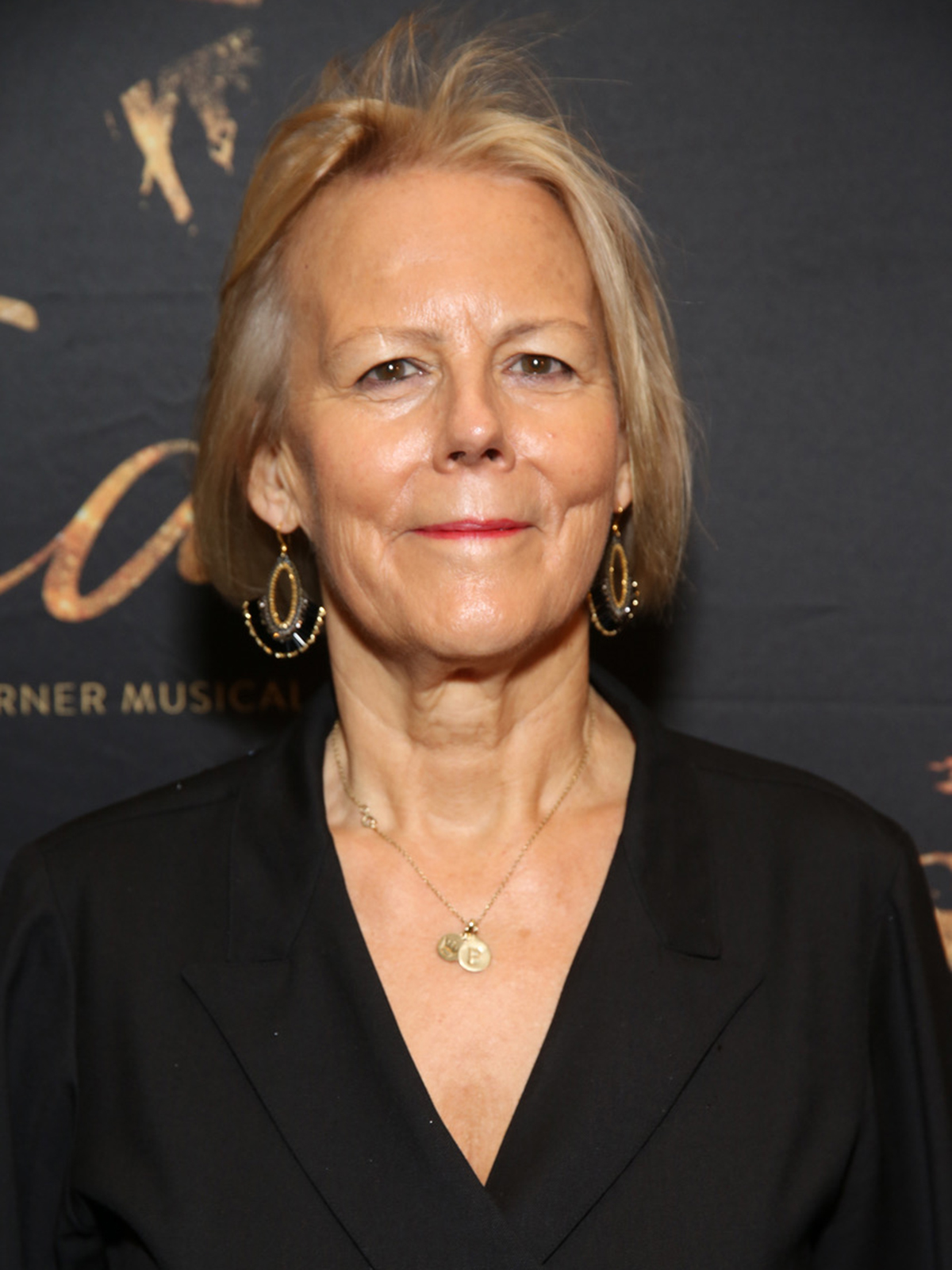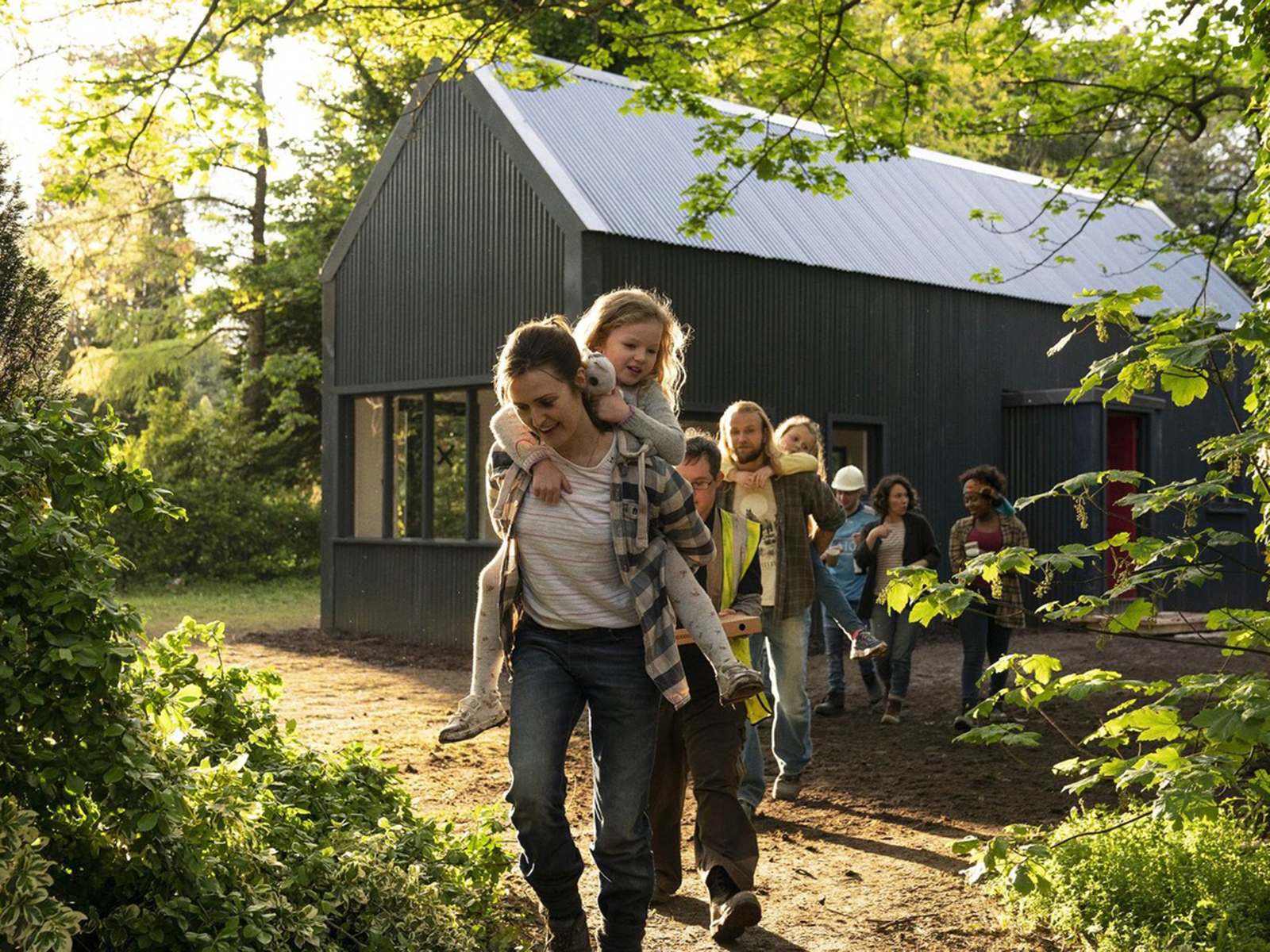
- Industry
Phyllida Lloyd: The Path to “Herself”
Most directors aspire to big budgets to express their vision, but the British director behind blockbusters such as Mamma Mia! (2008) and The Iron Lady (2011) found that the opposite was true. Phyllida Lloyd went looking for an indie project to satisfy her creative cravings and found it in first-time writer Clare Dunne’s script. The seed for Herself was planted when the two women collaborated on an all-women Shakespeare project and turned it into a film about a mother of two young daughters, Sandra, who find herself in an abusive relationship with a controlling husband and has nowhere to turn. But instead of being a story about a woman breaking down, it is a story about resilience and rebuilding and creating a new world for oneself. We spoke to Lloyd from her home in London.

Herself is an independent film – but you are no stranger to blockbusters – like Mamma Mia! and The Iron Lady. What do you prefer?
I have been trying to do a lower budget film for many years. It sounds crazy because most people are trying to go the other way and get bigger budgets. But I somehow felt my feet would be more on the ground in this indie world and that maybe it would be similar to the kind of social mission-driven work that I do in the theatre. I think my instincts were right because I feel more in my element and I work in a slightly different way on every film because there is never enough time or money, but I think I have found the kind of film that makes me do my best kind of work.
Talk about the beginning of the project Herself. You collaborated with Clare Dunne, who also plays the lead in it. How did it start?
Clare and I and Harriet Walter who plays Peggy in it were working together for five years in an all-female collective. We were working on plays by Shakespeare that were set in jail – in a women’s jail. We were very preoccupied by the number of women who had entered the criminal justice system after a background of either, as children in families where there was domestic abuse, or they had committed a crime against an abusive partner. It was just so much of the DNA of so many of the women we were working with and met. Then a friend of Clare’s became homeless. She was a mother of three children who had fled an abusive partner. She ended up in emergency accommodation. There was no housing for her and Clare just began to realize that there was so little social housing in Dublin, where she lived. There was so little provision for women who were going through this and thus she sat down and started writing the film.
Did she end up deciding to play the leading role or did you?
When she first showed me the screenplay just for my dramaturgical thoughts for it, she was not thinking to play the lead. She was just looking to get it made. I thought that she was just asking for my opinion because I was just looking at the first draft, and then cut to my overhearing someone saying: ‘Clare has written a great leading role for a movie star,’ which lead me to think: ‘Yes! Herself.’ She had no experience on screen but I knew that she would be astonishing. I just thought: ‘I am going to direct this and she is going to play the lead.’ That is what happened.
It is very much a female production. It also produced by Sharon Horgan. Do you think women have a different perspective on a story like this?
I have been asked for forty years if I think that women do things differently and it is really hard to give an answer to that. I just know that I have always gravitated towards stories with hidden voices – the voice that is not being heard. That has been my instinct all through my career because nobody else is telling it in quite this way. Could this story have been directed by a man? Of course! But it has not been. I suppose all four of us – Sharon, Harriet, Clare, and I – are passionate about this subject and maybe there is a special empathy because we are very conscious about the fact that this could be any of us in this situation. Men are probably less likely to be this fragile physically. Of course, men are victims of domestic abuse but largely these stories are about women. And unfortunately, especially during the time of the pandemic.
Sandra deals not only with domestic abuse, but she also deals with a bad housing situation in Dublin. Is this a big problem in Dublin and how does it affect women who are in abusive relationships?
It is not just Dublin. This is a huge problem in the UK and Europe in general. Probably it is worldwide. There is a very special circumstance in Dublin where you have a number of big corporations like Facebook, Airbnb, LinkedIn and I believe Google too have set up their bases in this small city and thus rents are sky-high. Local people cannot afford to rent there. So the whole situation of evictions happening because of the pandemic is horrifying.
The film is about rebuilding not only a house but also rebuilding lives. Did you talk to women who had been through this?
Yes, as mentioned we were working with women in prisons and so we met and talked to so many victims of domestic abuse. When Clare began to write the script, she was talking to women in Ireland and one of the things that really struck us was that one woman said: ‘Do not make this central character a victim.’ That is one thing that distinguishes this story. We have seen the ‘battered woman story’ but have we seen one that is heroic and courageous and about someone who is very much the agent of her own destiny? She receives help but only because she has become the architect of her own plan.
It is heartbreaking to see how domestic violence affects young girls and how they have code words for when to act and avoid danger. Did you and Clare base this on real events and I am assuming it must have been emotional to write these scenes?
Yes, a lot. We have been complimented by agencies who work in this field. It is the portrait of a mother and her children in the aftermath of physical abuse. It is about what happens after they have left. There is still great danger after they have left. I think that the way in which the children are coerced into keeping secrets from their father and to lie to their father about what happened is just so heartbreaking. Yet, it was a very tender process and we were very careful and took a great deal of time and trouble to find these kids, who are very special human beings. They were quite remarkable in their insight and maturity and their understanding in what the story was and at the same time their ability to understand that this is just acting. It really is the heart of the film: Sandra’s relationship with the children.
Even though Herself deals with a subject that is very disturbing, you have succeeded in making an uplifting film about a woman overcoming hardship with the help of others. Was this deliberate?
In many ways, you have a double agenda. Of course, we want housing, and we want more focus on this subject, but we are also sending a message to anybody – male or female – stuck in such circumstances that there may be a life over the threshold and maybe there is a community waiting to help. This is not a fairytale. Nobody helps Sandra just for the pure love of it. Everyone has a need to be part of something and to be part of this group. It is a very Irish tradition this notion of ‘meitheals’ when neighbors come together to help another neighbor accomplish a task. We did not take it lightly to keep a group together like this because it is very hard. As I said, it is not a fairytale. The help comes to Sandra because she has such a huge will and energy and determination to build something and that draws that group of people around you.
Clare says that you are very collaborative and take good care of people on set – is this important to you?
Yes, every director has so much power and control that really it would be crazy not to then open yourself out to those people you are collaborating with. I worked in the theatre for many years and thus I have had the opportunity to create very democratic workspaces where everybody has a voice and everybody is heard and it does not matter whether you are the most senior member or junior member. I like to do the same on a movie set. It is easier to do that on a film with a smaller budget like this one. You can excite everybody about the social mission of this and the potential of this. I don’t like shouting and if you surround yourself with the best people in the world why would you not want to know their opinion? People come invested if they think their voices matter. They will get behind you.

